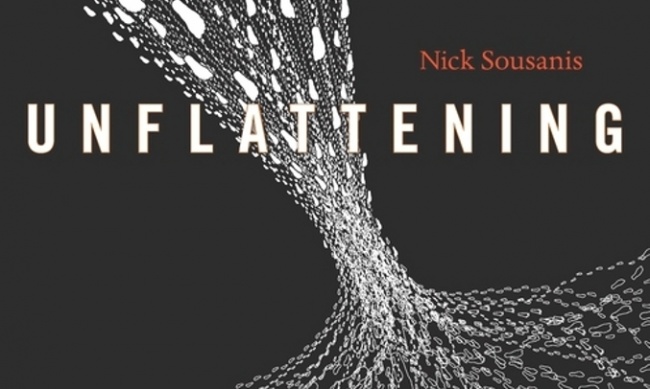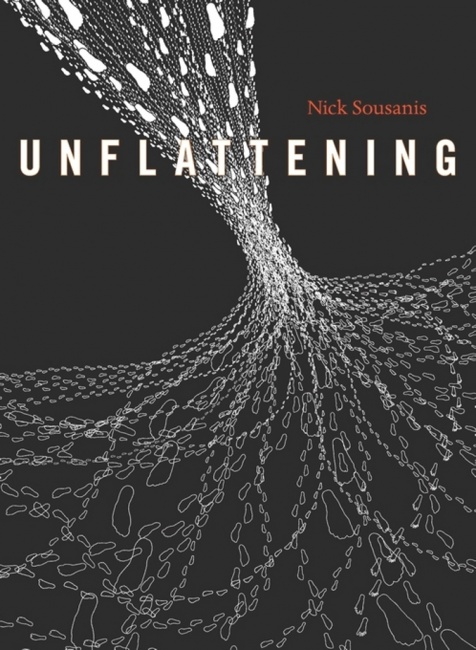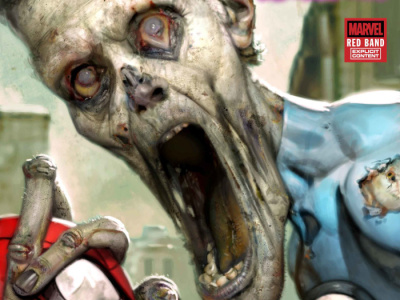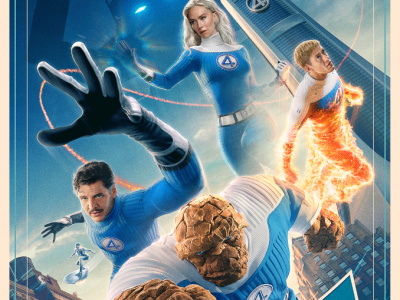School’s just about out for the summer but comics in higher education are definitely in and reaching far beyond the undergraduate lecture hall. Here are a few ruminations on that theme.
The Unflattening moment. When history looks back on 2015 as a breakthrough year for comics in higher education, the publication of Unflattening by Nick Sousanis on Harvard University Press will surely stand out as a turning point. Unflattening was Sousanis’s doctoral dissertation--the first that we know of done in graphic novel format. That fact alone would make it a novelty. But it’s the content of this work that makes it important.
Unflattening is a meditation on the nature and purpose of education, and the ways the current system is failing our modern society, economy and civilization. Sousanis considers the breadth of human imagination and laments the limiting effect of trying to translate all that knowledge, creativity and inspiration into something as cut and dried as a curriculum. He suggests alternative approaches that take advantage of visual communication to add new dimensions to our expressive vocabulary.
"We need a kaleidoscope of views," Sousanis writes, "That convey both our dimensionality and dynamic capability. While standardization has its uses, conforming to another’s expectations is detrimental. If the shoe doesn’t fit, it’s hard to move freely."
Unflattening is fully illustrated in a style that is reminiscent of Scott McCloud’s Understanding Comics, perhaps because that is the only other point of reference for a graphic novel that attempts to represent abstract intellectual concepts in visual form. But Sousanis does not limit himself strictly to the subject of comics itself. This book offers a very complex point of view on a wide variety of subjects, bringing in numerous references from philosophy, history, literature and, yes, comics--as you might expect from a doctoral dissertation. The great triumph is that he makes the graphic form seem not just a natural way to express these ideas, but an inevitable one.
Maybe it’s not your idea of beach reading; still, Unflattening, an unapologetically heavy academic work, is one of the most noteworthy graphic novels of the year, and one that I’ll bet we’ll be hearing about come Eisner Award season next year.
Comics as communication platform. Last week I wrapped up a class I’ve been teaching at the University of Washington in the Communication Leadership graduate program on "comics as communications platform." The CommLead program confers a Masters degree in communications, mostly to mid-career professionals in fields like marketing, technology, game development, video production, journalism and design.
The goal of my class is to get these aspiring media moguls to think about graphic narrative--the pretentious, academically-acceptable term for comics--as a possible vehicle for their storytelling strategies. That involves introducing the students to the building blocks of comics style, the historical context of comics as a medium, and the whole evolution of comics in today’s cross-media entertainment world.
The class met five times over ten weeks: every other Saturday, 9am-5pm. Yep, eight hours. This year I was lucky to have Eisner-winning graphic novelist David Lasky, mini-comics auteur Kelly Froh (organizer of Seattle’s ShortRun small press show), illustrator/cartoonist Stan Shaw, writer/publisher Chris Roberson (iZombie), educator and digital comics maker Yen Yen Woo (Dim Sum Warriors), IDW publisher Ted Adams and comiXology co-founder John Roberts to soak up some of the hours talking about the anatomy of the comics medium, comics as art and narrative, adapting comics to other media, transmedia business strategy and comics as digital platform.
As you might imagine, this is a pretty intense class, especially for students who may not be familiar with comics beyond their most obvious manifestations in popular culture. It’s also the kind of class that might have gotten the side-eye from academics not too long ago. Comics has only just staked its claim as literature; most departments are not quite sure where it fits in a media strategy program.
Now, at least at UW, it sits comfortably in the catalog alongside such worthy fare as "Multi-Platform Content Strategy: A Practical Approach to Immersive and Responsive Content," "Leadership Through Story and Communities: Creativity and the Digital Age" and "The Future of Marketing: How Digital Media is Changing the Practice of Commercial and Consumer Engagement" (which I also teach, strangely enough...)
Folks like me teaching classes like this in a professional-track program isn’t the landmark that Unflattening is, but I count it as progress. Your mileage may vary.
"Eradicate this garbage!" Finally, it wouldn’t be a conversation about higher education in 21st Century America without someone somewhere getting deeply offended about something taught in a college classroom.
The aggrieved party in this case is someone named Tara Schultz, a student at Crafton Hills College in Southern California, who was assigned Persepolis, Fun Home, Y: The Last Man and The Sandman: The Doll’s House for an English lit class.
According to the Redlands Daily Facts newspaper, Schultz was outraged. "I didn’t expect to open the book and see that graphic material within. I expected Batman and Robin, not pornography," she explained. Graphic material! In a comic! Who’d’ve thunk it?
The objective of her concerns was to "at least get a warning on the books. At most I would like the books eradicated from the system. I don’t want them taught anymore. I don’t want anyone else to have to read this garbage."
The Comic Book Legal Defense Fund has more details.
What’s disappointing about this case, beyond the obvious, is that Ms. Schultz seemed most upset because the offending materials didn’t conform to her pre-existing opinions about comics as kids’ stuff. Are we really still having that conversation?
Students, if you are going to get worked up about comics, please at least take them seriously. There are plenty of examples of "problematic" content (and let’s not even get started on industry business practices...) by the standards of today’s Academe. Let’s at least try to have a fight about something real.
--Rob Salkowitz (@robsalk) is the author of Comic-Con and the Business of Pop Culture.
The opinions expressed in this column are solely those of the writer, and do not necessarily reflect the views of the editorial staff of ICv2.com.

Column by Rob Salkowitz
Posted by Rob Salkowitz on June 15, 2015 @ 11:11 am CT
MORE COMICS
Bagged with Content Warning
June 30, 2025
Marvel Zombies: Red Band will carry a Parental Advisory content warning and come polybagged.
Showbiz Round-Up
June 30, 2025
This summer is a hot one for Hollywood news. Time for a round-up!
MORE COLUMNS
Column by Scott Thorne
June 30, 2025
This week, columnist Scott Thorne discusses sales on the Final Fantasy set and his experience with Games Workshop's policies on breaking release dates.
Column by Rob Salkowitz
June 24, 2025
This week, columnist Rob Salkowitz looks at some predictions about the future of webtoons from Yongsoo Kim, CSO and Head of Global WEBTOON, the largest player in the industry.








